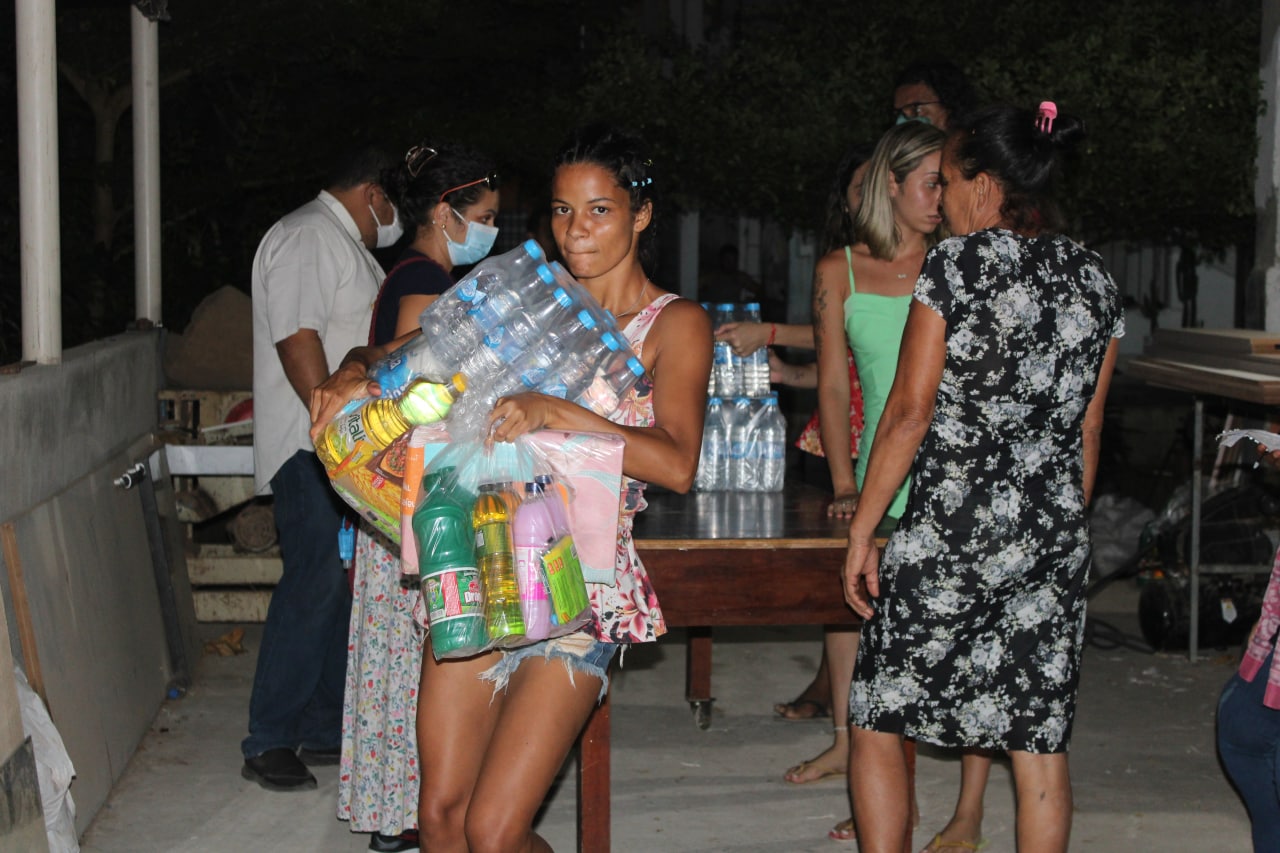On Christmas Day, after weeks of heavy rain had already caused widespread flooding, two dams collapsed in Brazil’s Bahia State, compounding the devastation. The state’s governor Rui Costa described it as “the worst disaster that has ever occurred in the history of Bahia”. Half a million people were directly affected by the flooding and fears of wider impacts immediately raised: Brazil is still in the grip of the Covid pandemic and supplies of both vaccines and treatments were lost when the floods hit health centres.
Churches of the Igreja Episcopal Anglicana do Brasil (Anglican Episcopal Church of Brazil) in the region were among the first responders to the disaster. As well as offering pastoral support, the Church launched an appeal for donations of clothing and money and joined both ecumenical endeavours and wider partnerships to help affected people.
On January 12th, the Anglican Alliance convened an online call to bring together the Igreja Episcopal Anglicana do Brasil (IEAB) with the wider Anglican family of churches and agencies for an update on the situation and to offer solidarity and support. On the call, bishops of the IEAB and representatives of Servicio Anglicano de Diacono e Desenvolvimento (SADD), the development arm of the IEAB, were joined by representatives of Episcopal Relief & Development, the Primate’s World Relief and Development Fund, USPG, CMS, the Anglican Church of Canada, The Episcopal Church and the Scottish Episcopal Church.
As well as discussing the immediate situation and needs, participants also raised questions about the underlying causes of the disaster. These include climate change, poorly constructed infrastructure, a disregard for Indigenous peoples and engrained exploitative attitudes and behaviours – all of which are rooted far more widely than the geographical area affected.
The call therefore brought to light the links between local and global issues – those wider, systemic issues to do with justice and responsibility, which Anglicans everywhere need to address through advocacy and the deeper transformation of attitudes and behaviours. The partners’ call exemplified the precious gift we have as the Anglican Communion: that we are simultaneously local and global, a connected body with a shared identity that transcends national borders. This gives us a rare perspective, opportunity and responsibility.
Current situation
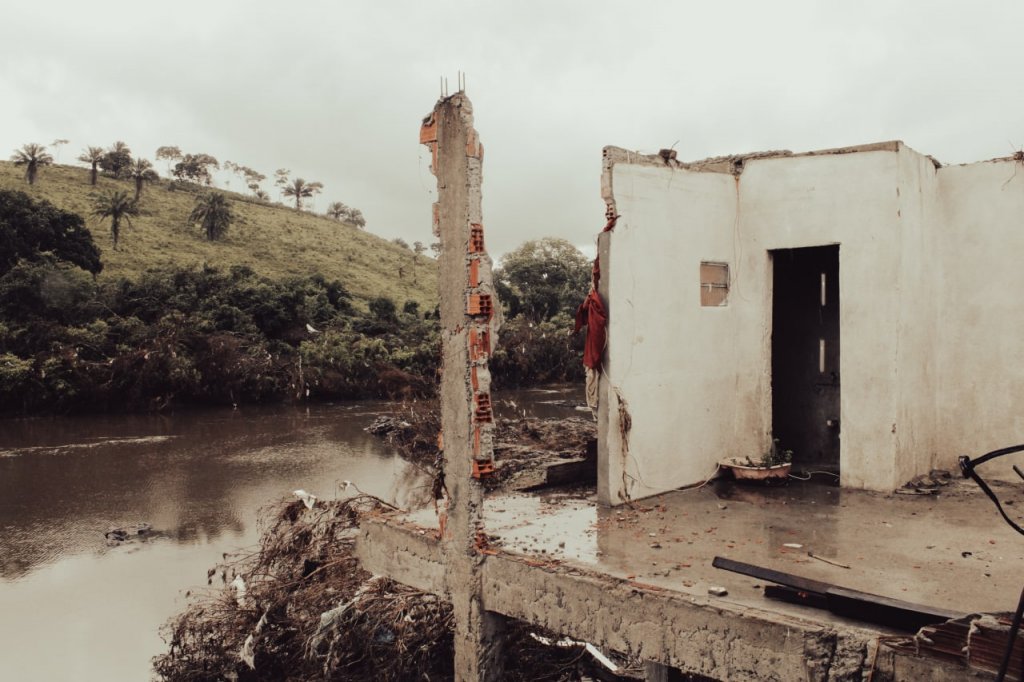
Image: João Daebs
Church leaders from the affected region shared in depth about the current situation in northeast Brazil. To date, 35,581 people had been made homeless and there had been 25 confirmed deaths according to official figures. Over half a million people had been affected.
Those most affected are people living on the margins: near rivers, small-scale farmers and Indigenous people – people who were already impoverished, marginalised and vulnerable.
As well as a huge geographical area and number of people being affected, the consequences have been far-reaching too. Subsistence farmers have lost all their crops; houses have been destroyed; roads are blocked; water is contaminated, and foul water has made household items – including furniture, household appliances and clothing – unusable; documents have been lost. There have been health consequences too as the situation has led to an increased risk of flu, Covid-19, leptospirosis and hepatitis B.
As a result, there is great need. In particular, there is need of food and drinking water, bed linen and clothing, and medical, psychological and pastoral care. A local church leader described how it is particularly hard to persuade people to dump contaminated household items when it’s all they have.
How is the Igreja Episcopal Anglicana do Brasil responding?
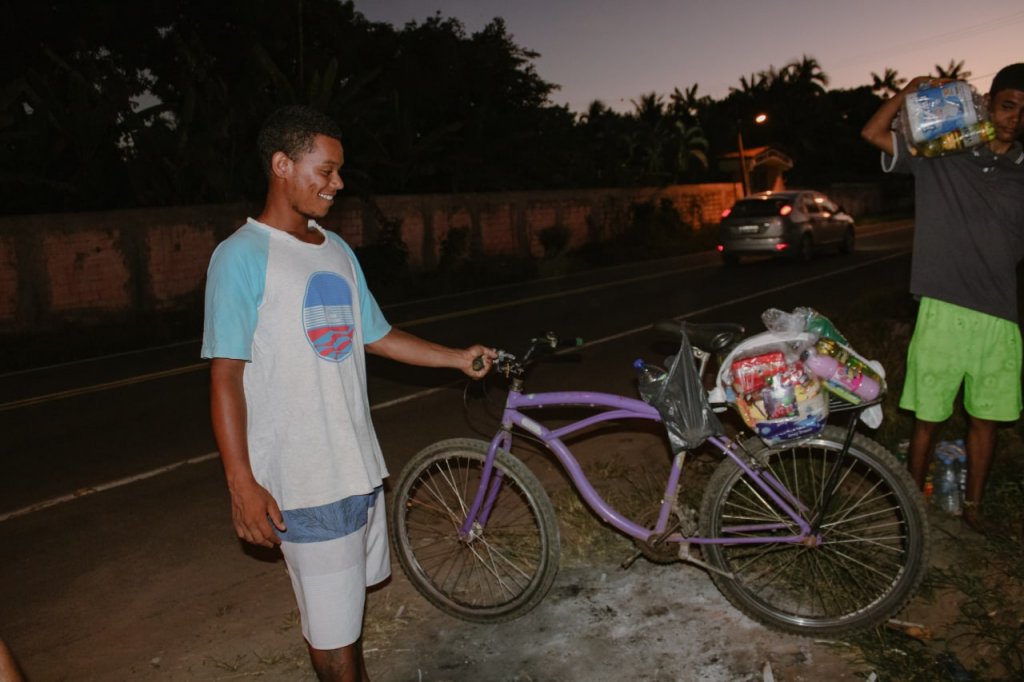
Image: João Daebs
One Anglican priest described how the IEAB is responding to the disaster locally, informed by the Anglican Five Marks of Mission, “mainly”, they said, “responding to human needs with love and acting to safeguard the integrity of Creation, sustain and renew life on earth”.
The Church has been engaged in a clothing donation campaign, receiving contributions from the community to pass on. It has also launched an appeal for money. IEAB is joining in ecumenical initiatives and wider initiatives to support affected people. “We have been trying to develop projects and connect people to support the victims and we are doing pastoral visitations”, the priest said. The IEAB has formed a partnership with Coletivo MUPPS – the Women Public Policies and Society Collective – to tackle menstrual poverty. They also described how they have made videos to share information such as how to make water safe to drink and prevent leptospirosis.
Partnerships
As the local church has responded to the needs of communities, they have been accompanied by SADD – the Anglican Service for Diakonia and Development of the IAEB. As well as helping the local church develop its emergency response, SADD has been acting as an intermediary, liaising with international partners and managing the distribution of funds for projects.
Episcopal Relief & Development have supported SADD with funding to purchase basic food baskets, water, hygiene material, cleaning supplies, sanitary towels, sleeping pads, bed and bath linen and a pastoral visit to the two affected communities.
On the call, the Primate’s World Relief and Development Programme pledged support, as have USPG since.
What is the Church looking for?
Brazilian church leaders described the immediate need for financial support to meet the ongoing demands created by the crisis: to provide for the survival and dignity of the people affected.
But they also talked about the medium term needs as well and, in particular, the need to build resilience and counter environmental racism.
How can we respond?
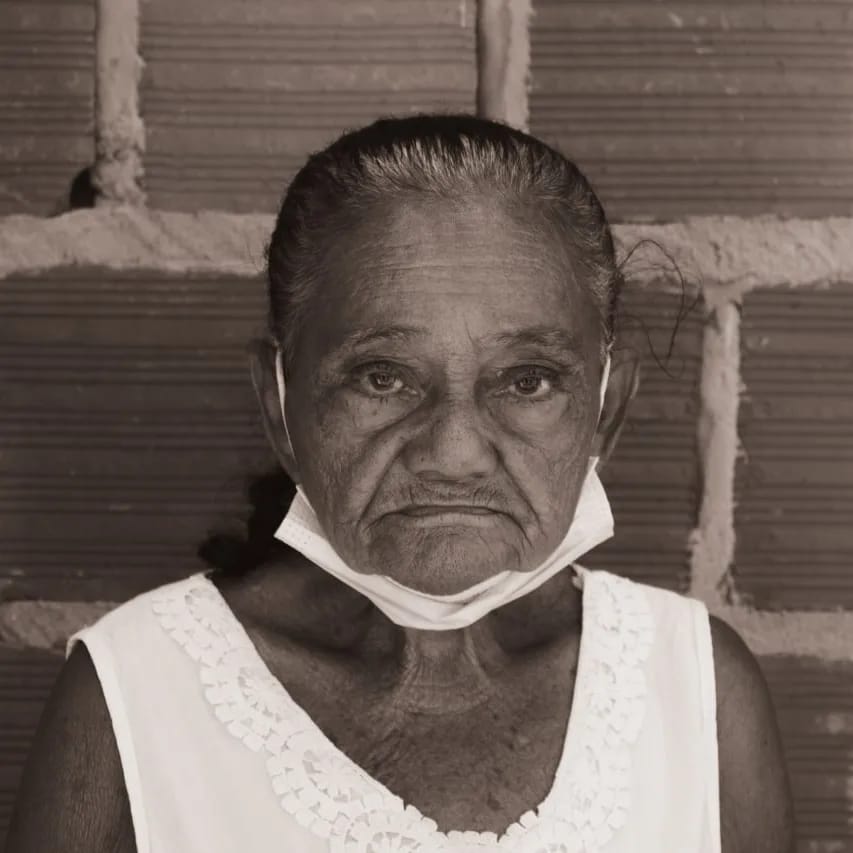
Image: João Daebs
If you would like to donate to the relief efforts, please contribute to one of the Anglican Agencies’ disaster relief funds, which exist to provide emergency financial support in situations such as this. Links for giving:
- PWRDF Emergency response
- Episcopal Relief & Development International disaster response
- USPG
There are further ways of offering support and solidarity too, as highlighted below.
Going deeper: underlying issues
In response to a question about what was meant by “environmental racism”, a conversation unfolded in which some of the underlying issues contributing to the disaster were explored. This discussion led to a deeper understanding of the interconnections between the local event and engrained attitudes and behaviours, power structures and systems, and other factors that go far beyond the geographical area affected. The conversation revealed opportunities for advocacy and influencing within the wider Anglican Communion. Key elements of the discussion are outlined below.
The Brazilian leaders explained that environmental racism relates to the appropriation of land by big companies, such as agri-businesses and mining companies, leaving the local population landless and without rights. Brazil, they said, has a long history of such companies exploiting the land and the people, and that this is now part of the fabric of Brazilian society and ideology. They also talked about how Brazil has experienced catastrophic dam breaches previously, within the last five years. This was not the result of a sudden accident, they said, but the result of companies prioritising profit over safety and not caring about the people affected. The cost of compensating affected communities is seen as less than the cost of building sound structures. As a result, dams may be badly constructed and break in heavy rains. They also described a previous event where 800 km of a river became ‘dead’, unable to sustain life, as a result of pollution from heavy metals, mud and mine tailings. All of this causes economic, physical, psychological and spiritual damage to affected communities, who lose everything.
International dimensions
The mining companies, it was pointed out, are international organisations. “The international companies don’t care” one priest said. “The Church is trying to dialogue [with them] through the National Council of Churches. There is a joint effort from the churches to try to dialogue with the companies and publish what is going on here… working with the Movement of People Affected by Dams.”
Another church leader described further factors contributing to the situation, including the very high rainfall experienced in the December and January – an amount higher than would normally be expected in six months. In addition, they said, “Unfortunately, we live in a country where the environment is not an issue. The environment, for this government, is just a resource, an asset, it’s not to be cared for – nor also the people. In all senses, we have been destroying [it]…. We are hoping to count on you as partners so we can mitigate the situation, especially right now when people are suffering”.
The international dimensions of the disaster and deeper issues in play provide opportunities for Anglicans in other parts of the Communion to engage and act in solidarity with affected communities, and the Church in Brazil, through advocacy and influencing.
Most specifically, Anglicans living in countries where the international companies are headquartered can engage in advocacy to call companies to account for their actions.
More generally, the floods demonstrate how climate change will continue to have devastating consequences for communities across the world, highlighting the need for resilience building, mitigation initiatives, and just financing for loss and damage.
And thirdly, the comment on attitudes and mindsets calls us all to reflect on how we view the natural world. Do we see it primarily as a resource to be exploited or something to be treasured?
In conclusion, the church leaders reminded the participants that local black and Indigenous people in Brazil are taking care of the environment, echoing the messages of the Prophetic Indigenous Voices on the Planetary Crisis videos which drew a sharp distinction between relational and extractive world views. Speaking about the situation in Brazil, they said, “The Indigenous communities deal with nature in a very connected way. It is very different from white people. So, these particular communities are taking care of the territory. The problem is the infrastructures of the system, the capitalist system, and the profiting system, so these businessmen who only see profit – the people and land don’t matter. There is an Indigenous author here in Brazil, Ailton Krenak, who says ‘they build a machine to swallow the world – and this machine eats the river, eats the land, eats people’ – and he contrasts this with the harmonious way Indigenous people live with nature”.
Please pray for all affected by the devastating floods and their long-term consequences; for local clergy and churches as they respond; for the wider IAEB and the work of SADD; for Anglican partners across the Communion as they respond; and for the Anglican Alliance as it serves as a convening platform in times of disaster.
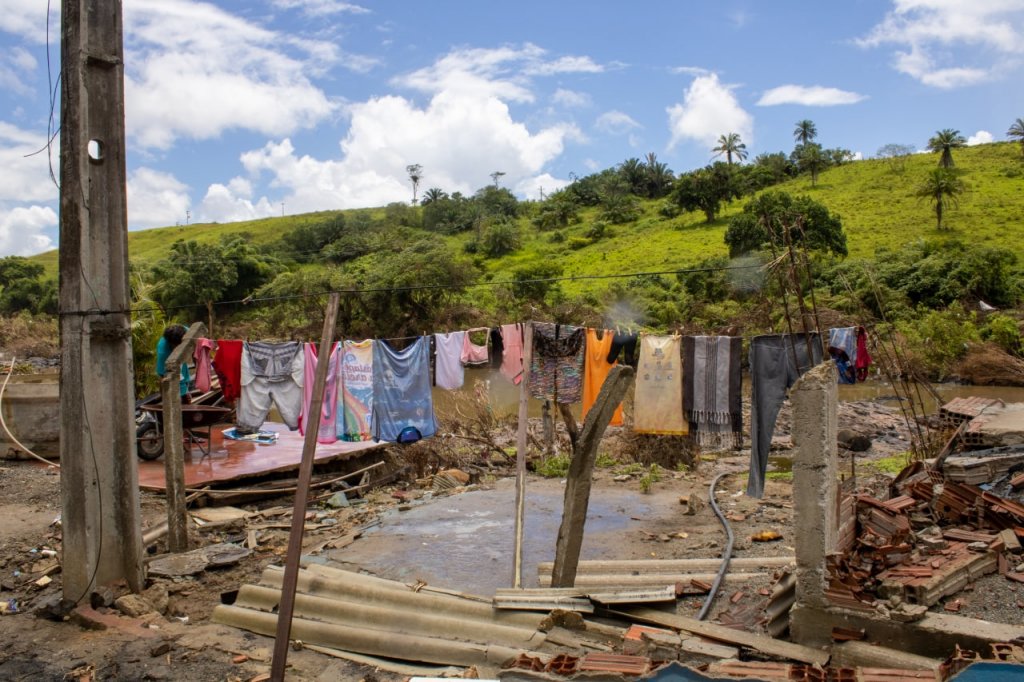
Image: João Daebs
The Anglican Alliance serves to connect, equip and inspire the worldwide Anglican family to work for a world free of poverty and injustice and to safeguard creation.
We tackle this ambitious agenda in several interconnected ways, including:
- Covid-19 response and a just and green long-term recovery
- Resilience and disaster response
- Safeguarding creation, encompassing both the climate emergency and wider environmental crisis
- People on the move, encompassing safe migration, tackling human trafficking and modern day slavery, and upholding the rights of refugees
- Tackling inequalities, especially around poor, vulnerable and marginalised people, including women and youth.
In all these areas of work we:
- Take an asset-based approach to transformation, which is empowering and sustainable
- Share learning and best practice to build capacity
- Extend and broker partnerships for maximum impact
- Resource advocacy to challenge unjust structures and influence change
- Seek to be midwives of hope as we pursue a Kingdom vision that is about good news, abundant life for all and a flourishing planet.

